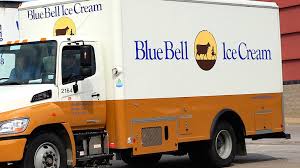The Fish Rots from its Head Down – Review of Criminal Charges Against Blue Bell’s Former CEO Paul Kruse

We all use dramatic language to present important ideas – and one that I always cite – “A fish rots from its head down.”
The meaning of this well-known phrase is clear in the corporate culture context – an organization with “rotten” leadership will inevitably perform poorly and managers and employees will likely engage in misconduct.
The often-used phrase of “tone at the top” is inartful in my view – an organization’s leadership culture is defined much more broadly than the word “tone” implies. A company’s culture extends well beyond senior leadership and includes middle and lower managers. In most cases, a company’s cultured is not defined in extremes – except in a few cases where serious misconduct emanates from the company’s leadership.
Blue Bell’s serious safety flaws and sale of contaminated ice cream resulted in the death of three persons. As set out in the information (Kruse waived his right to an indictment), Paul Kruse, the former CEO, committed serious crimes and directed Blue Bell’s criminal scheme. It is a wonder that he was not charged with manslaughter. If there ever was a stinky fish head, Paul Kruse is the perfect example of a rotten fish and Blue Bell suffered from a culture of misconduct.
Blue Bell’s Business

Over a four-year period, 2011 to 2015, Blue Bell earned $2.5 billion in total sales. The contamination issue occurred at two of its three manufacturing plants – Brenham, Texas and Broken Arrow, Oklahoma. Blue Bell was a direct delivery company and controlled the distribution of products from its manufacturing plants to regional distribution centers and then directly to the freezers of its customers. Blue Bell sold its products in 23 states.
Paul Kruse was the president and CEO, and Blue Bell’s marketing, sales, quality and all departments reported to him.
Ice Cream Testing
As explained in the indictment, the bacteria listeria occurs naturally in the environment – several species of listeria are harmless. One form, however, listeria monocytogenes is an environmental pathogen that can cause serious illness, listeriosis, which can be life-threatening.
Over a five year period, 2010 to 2015, Kruse and other executives knew that Blue Bell was not complying with basic practices to ensure sanitary conditions at its manufacturing plants. For example, Kruse and others were specifically cited on several occasions for condensate problems, roof leaks and other conditions in all facilities, but failed to take any steps to fix these conditions.

During this same period, Blue Bell regularly tested its ice cream for the presence of coliforms, which is an indicator of the presence of pathogens caused by insanitary conditions. The standard for coliform presence is no more than 40 colony-forming units per milliliter of coliforms. Blue Bell’s tests at the Brenham and Broken Arrow facilities were in excess of this standard and sometimes “so high that they could not be counted by Blue Bell laboratory technicians,” and was referred to internally as “TMTC,” too many to count. With the approval of Kruse, Blue Bell shipped these products that were tainted.
Aside from the coliform-tainted ice cream, Blue Bell occasionally arranged for listeria testing. Such tests would result in a negative result or a “presumptive positive” result, which indicates the presence of listeria but not necessarily the potentially lethal listeria species. A second test is conducted to determine if the product contains the lethal listeria monocytogenes.
In early 2011, a Blue Bell quality control employee created a program to test Blue Bell ice cream with high coliform results for listeria, in response to specific concerns raised by the U.S. military, a significant customer.
In April 2011, Paul Kruse met with the employee and ordered the employee and a responsible executive to cease testing the products for listeria. In the meantime, two samples sent to the laboratory before Kruse’s order came back as presumptively positive for listeria. The employee later told Kruse about the test results. Kruse again ordered the employee to stop the testing program.

Based on Kruse’s instruction, another quality control employee destroyed hard copy and electronic records of the two presumptive test results. Blue Bell shipped the ice cream despite the positive test results.
Blue Bell continued to ship products with high coliform test results that were TMTC without further testing for pathogens such as listeria.
Positive Listeria Monocytogenes Test Results
During the period from February 13, 2015 to April 20, 2015, Kruse and other executives were informed by state and federal authorities, as well as third-party laboratory tests that at least seven Blue Bell ice cream samples made at two different plants tested positive for listeria. Specifically, on five separate occasions, Kruse and executives were notified that Blue Bell’s products tested positive for listeria monocytogenes, the lethal pathogen; on two separate occasions, Kruse and executives were notified that Blue Bell’s products tested positive for listeria.
Kruse and the Cover-Up
Notwithstanding these testing results, Kruse and others took no steps to recall the products or inform its customers of the tainted products. Kruse even was aware that Blue Bell falsely notified the FDA that it planned to recall its products in South Carolina after learning of positive listeria test results of its products.
Kruse directed employees to remove various tainted products from its customers stores but specifically instructed them not to tell the customer stores the reason why Blue Bell was removing the product.
Kruse rejected a proposed press release notifying the public of the tainted products and that listeria monocytogenes could be lethal. Instead, Kruse prepared a statement to be given by delivery drivers to customers when removing tainted ice cream that falsely explained that the ice cream was manufactured by flawed machines and failed to mention any safety concerns and presence of listeria. This same false explanation was distributed to numerous customers.

One customer, a Florida school district, complained that Blue Bell failed to inform the school district officials of the listeria contamination. Specifically, the school district official suggested that Blue Bell’s communications was deceptive and prevented the school district from taking appropriate steps to ensure the safety of its students.
Even after learning that five patients at a Wichita, Kansas hospital were ill because of Blue Bell ice cream tainted with listeria, Kruse failed to inform any of Blue Bell’s customers of the tainted products. In fact, Kruse caused Blue Bell to post a false explanation for the removal of Blue Bell ice cream products and failed to mention any contamination or safety concerns.
Even after the Center for Disease Control warned the public about Blue Bell ice cream manufactured from the Benham, Texas facility, Kruse and Blue Bell specifically denied that the government had informed it of any food safety problem.















